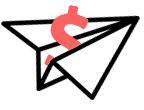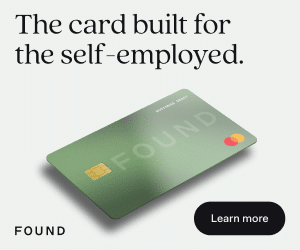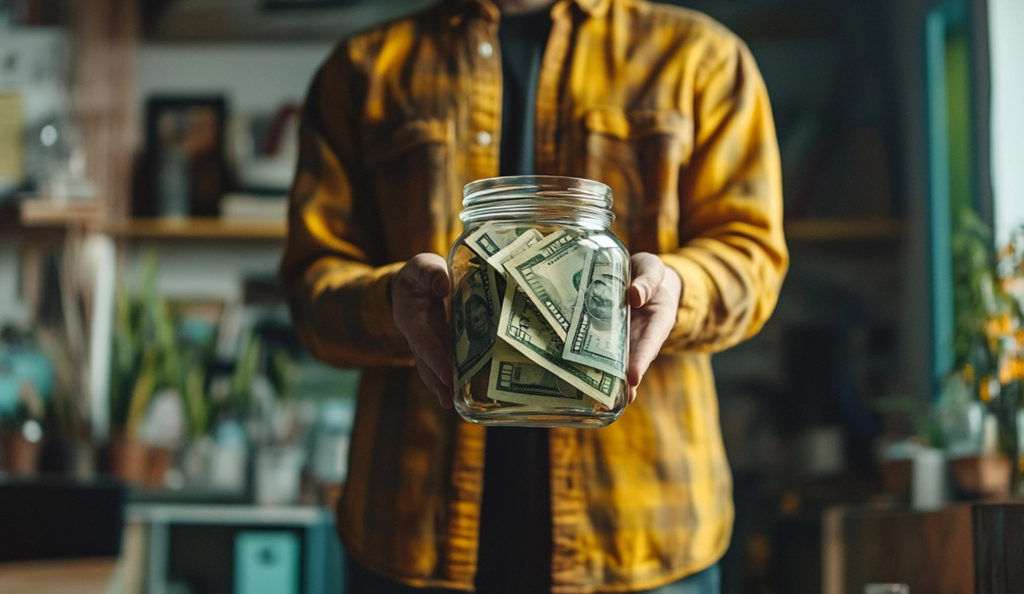Worst case scenario: you wake up, check your email and see that all your clients have decided to drop you at the exact same time.
Now, how long would you survive on your savings if something like this happened? Situations like this are where the importance of an emergency fund becomes apparent.
How Much Should You Save for Your Emergency Fund?
You need to start saving money and building up your emergency fund from day one of freelancing. In my opinion, having an emergency fund that covers your living expenses for the next 3-6 months is enough. But of course you can make it bigger or smaller, depending on how much risk you are willing to take. And the whole point of building an emergency fund is that it should be growing as your business grows.

Get Weekly Freelance Gigs via Email
Enter your freelancing address and we’ll send you a FREE curated list of freelance jobs in your top category every week.
My Freelancing Journey and the Role of an Emergency Fund
I have been a freelancer for 10 years, working in digital marketing and website development, and during my career I have seen and experienced many things. I remember when first starting out, I had to say yes to every project that came my way because I could not cover my living expenses if I didn’t take on the project. So I ended up working with lots of small and challenging clients in the beginning. They didn’t pay me much (and I didn’t know my worth either), some clients paid late and others didn’t pay me at all.
My first experiences in freelancing made me realize the risks associated with freelancing, and I decided I want to start building up my emergency fund from day one. Having savings has come handy many times during my career. Whether it was an important client firing me, or the government deciding to pre-tax me, having an emergency fund was critical for my mental wellbeing. It also prevented me from having to go into debt to cover large sudden expenses.
When you have a solid financial situation as a freelancer, you don’t have to worry about who’s going to be your next client, and you can actually start choosing your clients and work only on projects that you enjoy. It makes your life so much easier, enjoyable and less stressful in my experience.
My plan from the beginning was not to just build an emergency fund, but to secure my financial situation, and already start preparing for retirement, even though I started freelancing when I was just 25 years old.
Diversifying Your Client Base to Reduce Risk
I realized being dependent on just a small amount of clients is a risk, because they could all fire me the same month. Also focusing on clients from a single industry might not be a good idea since if the industry gets hit, then your clients won’t be as willing to hire work. So having a good amount of clients from different industries is the best way to go. The amount of clients is of course up to you, but you should be able to make a good living without having to be dependent on one big client that could let you go at any time.
Income Diversification: Building Passive Revenue Streams
Diversification of income streams is also important as a freelancer. I myself started doing affiliate marketing while freelancing because it went so well with my set of skills. It never became a huge income stream for me, but still I was able to bring in several thousand dollars per month in passive income at the peak. I also sold one of my affiliate websites for around 80 000 € which boosted my emergency fund and helped me get started with investing.
Switching to Flat-Fee Pricing for Predictable Income
Another big thing for me was to renegotiate my contracts with clients. I went from charging by the hour to fixed monthly pricing. This helped me plan my income much better since I started charging clients a flat fee per month for the work I was doing. I went from guessing the amount of billable hours I would do any month, to a predictable recurring monthly income stream. I also changed my contracts with clients to include a 30-day term of notice, which meant that if a client fired me, I had at least 30 days (with pay) to find a new one to replace them.
Investing Your Emergency Fund for Growth
Once I got some money saved up, I opened a savings and investment account that allowed me to start investing in stocks and mutual funds. This way my emergency fund money never just sleeps in an account somewhere, it’s creating more money in interest and dividend payments even while I’m sleeping. In the beginning these payments will be small, maybe tens of dollars per month, and you will feel like it’s nothing significant, but once you start earning more, you can invest more and hence the payments will grow with time.
Tracking Your Freelance Expenses with Technology
Another thing many freelancers might not consider is the importance of also tracking your expenses – not just your income. Your income doesn’t really matter if your expenses are sky high. I am one of the co-founders of SparkReceipt, an AI-powered expense tracker and receipt scanner, which lets you track your income and expenses in real time. Since joining the company, I have been able to track and categorize all my expenses with ease, and I always see the financial health of my business in a glance. When you track your expenses, it’s easy to see where your money is going and you can cut out unnecessary expenses.

Steps to Build and Maintain Your Freelance Emergency Fund
When it comes to a certain strategy to create your emergency fund, I found that the best way for me is to keep saving and investing the majority of my freelance income. I set aside a certain amount of money to cover my expenses, and invest the rest of my income into dividend stocks. For me this is the right way to go, because I want to work less and less, and by having a steady passive income from dividends gives me freedom to do so.
How much you save per month is of course up to you and depends on your income and expenses. If you’re just starting out, you might need most (or all) of your income to cover expenses, but once you get a solid client base, you can start saving more and more of your income and put it towards your emergency fund or retirement portfolio.
I think it’s important not to consider an emergency fund just as something that is there in case you face a big challenge or a real emergency. It’s there to secure your future as a freelancer. The bigger your fund gets, the more freedom you have to take risks, search for ideal customers and you could even take a few months off working all together.
As with anything, consistency is key. You need to keep saving money every month, even through good and bad times. Of course you can adjust the amount of monthly savings depending on your situation, but I would recommend saving more when business is good, and less if you are going through a dry spell in your business.
Most investment platforms allow you to set up monthly payments that will be taken from your bank account automatically, and they can even be invested automatically into stocks or funds that you pick. When it’s automated, it stays consistent, and you don’t even have to think about it. The money goes from your account, and you can just watch it grow through interests and dividends month by month.
Conclusion
Freelancing is uncertain. Your clients could technically fire you at any time, and it’s up to you to build a secure financial situation for yourself in case something like this happens. Diversifying your income is important, especially if you can build some passive income streams for yourself. Also, pricing strategies play a role, I prefer flat, project-based pricing that allows me to know exactly how much money is coming in every month.
From my point of view, an emergency fund is not just for emergencies, it should be your plan to secure your future as a freelancer. It should be your retirement plan – a savings account that you keep adding more and more money to, until it grows so big that you can use dividends or interest payments to cover your living expenses.

Keep the conversation going…
Over 10,000 of us are having daily conversations over in our free Facebook group and we’d love to see you there. Join us!

